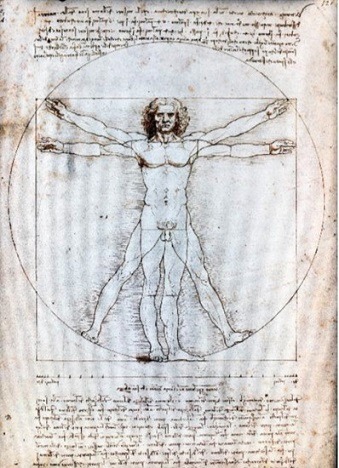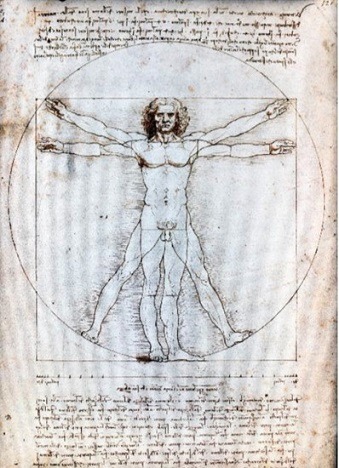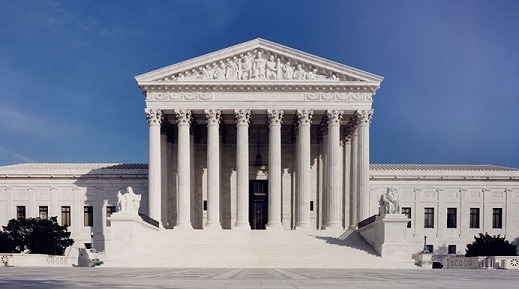#Maybury v. Madison
Text
New Post has been published on Books by Caroline Miller
New Post has been published on https://www.booksbycarolinemiller.com/musings/findidng-the-golden-mean/
Findidng The Golden Mean

My U. S. Senator voted against the Ukrainian-Istreal aid package that Congress passed recently. He said he opposed it because of Benjamin Netanyahu’s conduct in the Gaza war. I like my Senator. Nonetheless, I sent him an email that accused him of being long on principle, but short on common sense. The bill he rejected included aid for the people of Gaza, victims forced to live in tents under a barrage of bombs. We live in an imperfect world, so life requires compromises. People with pollen allergies, for example, accept that bees need clover fields to survive. Sometimes, imperfection can […]
#Article 111 of Constitution#Benjamin Netanyahu#Cheif Justice John Marshall#court stripping#Donald Trump#Golden Mean#Justice Clarence Thomas#Justice Neil Gorsuch#Maybury v. Madison#presidential immunity#Roe v Wade#Speech & Debate in U. S. Constitution#Supreme Court code of ethics#Ukrainian-Isreal aid
0 notes
Text
New Post has been published on Books by Caroline Miller
New Post has been published on https://www.booksbycarolinemiller.com/musings/findidng-the-golden-mean/
Findidng The Golden Mean

My U. S. Senator voted against the Ukrainian-Istreal aid package that Congress passed recently. He said he opposed it because of Benjamin Netanyahu’s conduct in the Gaza war. I like my Senator. Nonetheless, I sent him an email that accused him of being long on principle, but short on common sense. The bill he rejected included aid for the people of Gaza, victims forced to live in tents under a barrage of bombs. We live in an imperfect world, so life requires compromises. People with pollen allergies, for example, accept that bees need clover fields to survive. Sometimes, imperfection can be a positive force. Donald Trump’s flawed presidency has taught us that our 235-year-old Constitution may do more than guarantee equality for all. If the Supreme Court upholds Trump’s claim of presidential immunity, it will mean our head of state is a monarch able to commit any crime without fear of consequences. The High Court considered Presidential immunity concerning civil conduct three decards ago. A case in 1982 involving Richard Nixon ended with a decision that gave a sitting President a degree of absolution. The Constitution makes no mention of that, but the judges based their findings on the Speech or Debate section of the document. It grants civil immunity to members of Congress. Trump pushes the envelope when he argues that immunity extends to Presidential crimes. If the integrity of some jurists deciding Trump’s case weren’t also in disrepute, all might be well. But the High Court has been slow to promulgate rules of conduct for itself and members like Neil Gorsuch and Clarence Thomas have shown little inclination to police themselves. A citizen may wonder how these appointed jurists came to hold their sweeping authority over the Executive and Legislative branches of government. Article 111 of the Constitution restricts them to disputes between the states or those arising among ambassadors and other high-ranking ministers. Their expanded authority arose from Maybury v. Madison. In 1801, before leaving office, President John Adams commissioned William Maybury to be a justice of the peace. Adams’s successor, James Madison, refused to deliver the appointment, so Marbury sued. Taking the Federal government to court was novel, so before hearing the argument, the Supreme Court had to determine if it had jurisdiction. Chief Justice John Marshall decided that Maybury’s petition raised a legal question, so the Court could rule. That opinion which was never challenged was far-reaching. The Constitution, being silent on the matter, Marshall and his cohorts chose to reserve for themselves extraordinary power over the two other branches of government. Article 111 does offer a defense against an overreaching judiciary. Court-stripping permits Congress to limit or reduce a state court’s jurisdiction in federal matters except for those originally granted. The remedy poses complications that I’m not qualified to discuss. What matters is that besides Court-stripping, Congress has only one other way to assert its authority. It can write new legislation. If a bill fails, the judicial ruling stands. Because the High Court chooses the cases it hears, its involvement can seem political. For example, when it overturned Roe v. Wade with its almost 50-year-old standing, members of the public were outraged and called for a change in that body’s composition, either by adding to the number of members or imposing term limits Times of social and political upheaval can encourage extremism. Some people become heated enough to demand a scorched earth policy and let democracy be damned. Those of us standing in the middle watch in awe. Fortunately, enough of us exist to enforce the Golden Mean. At once a mathematical and philosophical construct, the Golden Mean, which also exists in nature, calls for a middle way–living without the extremes of excess and deficiency. It teaches that compromise enables inclusion. In ancient thought, it defined a moral life. When my Senator rejected aid for Gaza because the package was imperfect, he abandoned the middle way. He also forgot two important truths. First, he forgot that Israel is our ally and the only democracy in the Middle East. Its citizens deserve our support regardless of Netanyahu’s crimes. He will answer for his conduct in his country’s next election and, eventually, at the International Criminal Court in Haag. Second, my Senator forgot that imperfection attends to every human endeavor. Purity is the posture of angels and those who imagine they are.
#Article 111 of Constitution#Benjamin Netanyahu#Cheif Justice John Marshall#court stripping#Donald Trump#Golden Mean#Justice Clarence Thomas#Justice Neil Gorsuch#Maybury v. Madison#presidential immunity#Roe v Wade#Speech & Debate in U. S. Constitution#Supreme Court code of ethics#Ukrainian-Isreal aid
0 notes
Text
New Post has been published on Books by Caroline Miller
New Post has been published on https://www.booksbycarolinemiller.com/musings/the-case-for-small-measures/
The Case For Small Measures

A Chinese proverb about the butterfly effect teaches that small changes can have great consequences. Who would have thought that a farmer drilling a well to tap groundwater for his crops would cause the earth to wobble on its axis? Yet climate scientists report that farmers, towns, and cities that sip water from the aquifer the way a teenager downs a Coke are responsible for the wobble. After the Big Bang, another small effect was the birth of electrons. The orbits of many spun to the right but a few spun to the left, enough to prevent matter and ani-matter from canceling each other out. The left-handed flotsam and jetsom that remained became the stuff of the universe. Similarly, through a series of small encroachments, the United States Supreme Court has usurped powers beyond those specifically granted in the Constitution. Originally, the High Court rode the circuit. Judges traveled within districts to dispense law and order among the population. In 1803, in the case of Maybury vs. Madison, a question about Senate judicial appointments arose. The Court paused. Did it have the authority to rule on legislative matters? The jurists decided they did. And, as they say, the rest is history. Since deciding they had jurisdiction over Executive and Legislative matters, the High Court and its federal branches have inserted themselves into matters of government in ways that might mystify ordinary citizens. Recently, a District Court judge ruled that the drug mifepristone was unsafe for human consumption though for years it had been approved by the FDA and used for several medical conditions, including to induce abortion. A Right to Life advocate, the jurist chose to ignore the record and his lack of medical training so that he could elevate his opinion above the facts. Some might call it an abuse of power. In the view of many, a majority of the current Court has no qualms about flying in the face of public opinion to defend its conservative opinions. Were these rulings subject to a vote, it’s doubtful that the common man would support an agency determined to maintain social inequality. Even so, last year the High Court made strides to erode affirmative action, and LGBTQ rights while it pitted civil liberties against free speech. For example, a recent decision granted businesses permission to refuse service to minority segments of the population. Stunned, a left-leaning jurist, Sonia Sotomayor, could only stutter, That is wrong. Profoundly wrong. The Court’s upcoming fall season allows them a further opportunity to eat away at established protections. Acheson Hotels v. Laufer raises the question of standing for citizens who file complaints in civil rights and fair housing issues. CPFB v. Consumer Financial Services Association challenges the latter’s authority to protect consumers from the abuses of payday lenders. Kirtz vs U.S. Dept of Agriculture challenges the government’s right to sovereign immunity. Loper Bright vs. Raimundo, Secretary of Commerce challenges the “Chevron Defense. That defense permits government agencies to interpret a law if it is ambiguous. (“Four Fall Supreme Court Cases,” by Allison Zieve, Public Citizen News, Sept/Oct, pg. 7.) The judiciary’s aloofness and its insistence that Congress has no right to impose restrictions upon it, not even a code of ethics, doesn’t serve them well. It also flies in the face of reality. The Constitution gives the Legislature control over the federal court budget as well as an obligation to appoint its judges. Pretending the separation of its power is absolute smacks of hubris. When judges begin to think themselves above and beyond any checks and balances, they’re too far gone. (“Reign Supreme,” by Cristian Farias, Vanity Fair, November 2023, pg. 33.) The High Court would do well to listen to the murmurings of the populace, too. Just as a butterfly’s wing may affect a drought in China, so too, an ultra-conservative Court out of touch with the people erodes respect for the institution and fosters social unrest. The Supreme Court would do well to consider the laws of physics as well as those of jurisprudence. After the Big Bang, the electrons that spun left rather than right had the power to create the universe.
#abortion#arrogance of the U. S. Supreme Court#civilization and the aquafir#earth' s wobble#left spinning electrons#Maybury v. Madison#Mifepristone#Supreme Court's 2023 decisions#Supreme Court's upcoming decisions#The Big Bang#the butterfly effect#why matter and anti-matter didn't cancel each other out
1 note
·
View note
Photo

Meditation On Erosions
A new post (Meditation On Erosions) has been published on Books by Caroline Miller.
http://www.booksbycarolinemiller.com/musings/meditation-on-erosions/
Being someone who meditates for enlightenment, I decided to bend my thoughts to the state of our democracy. My reason for doing so was this statement: the public has more confidence in the military than any other national institution. (“Crisis of Command,” by Risa Brooks et al, Foreign Affairs, May/June 2021 pg. 73.)
On The Military:
Militaries are not natural bedfellows of democracy. So far, the United States has never suffered a coup. Nonetheless, citizens shouldn’t fall blind to the role the armed forces play in our democracy. The Department of Defense is a civilian institution meant to sit astride eight branches of the military. But the military controls its flow of information and several of its members have chosen to serve in Congress.
General Mark Milley, head of the Joint Chiefs of Staff, shows no reluctance to engage in politics. He was In Lafayette Square when Donald Trump threatened political demonstrators with the wrath of his army. Later, Milley initiated a private conversation with his Chinese counterpart after the 2021 election. He said he wanted to quell China’s fears after Trump’s defeat. Some question his authority to do so.
Among the defendants in the January 6, 2021 insurrection were veterans. They arrived at the Capital in military gear and, in the name of patriotism, sacked it. They also threatened the lives of public representatives, only to return home to run for elective office themselves. Many of them won.
EROSION # 1: Citizens of democracy fail their country when they rely upon the military to defend their institutions.
On The Courts:
Our Founding Fathers intended for the bulk of the government’s power to rest with Congress. They were leery of a strong presidency. Nonetheless, ongoing tussles between the White House and the Capitol presented the judiciary (Maybury v. Madison) with the opportunity to assume more authority than originally envisioned.
Their reach has grown to an alarming point. A majority of Americans refuse to believe companies are people. The Supreme Court in Citizens United disagreed. Their decision allowed a tsunami of money to flood into politics and corruption with it. The country needs corrective legislation, but expecting Congress to reform itself is like hoping a hungry infant will pull its mother’s tit from its mouth. Nonetheless, the truth is indisputable. Citizens United widened the gap between rich and poor.
EROSION #2: Citizens of democracy fail when they allow unelected bodies to govern.
On The Congress:
The Fairness Doctrine died in 1987. It had required licensed broadcasters to air both sides of controversial issues. Its repeal gave us Fox News and an unregulated social media where 55% of Americans get their information.
The Glas-Steagall Act, gutted in 1999, prevented financial institutions from speculating with depositors’ money. In 2007-2008, with restrictions removed, banks played roulette in the housing market. That led to its crash and a recession that lasted for many years. The Dodd-Frank Protection Reform of 2010 reinstated some protections. But, in 2018, Donald Trump and the Republicans gutted it, too.
EROSION # 3: Citizens fail when they remain silent as Congress repeals laws meant to protect the public.
On my social media page, someone called President Joe Biden a “weak suit,” meaning he was unable to govern. Facts show otherwise. In his first year, he delivered on many campaign promises while managing the pandemic.
EROSION #4: Citizens fail when they are uninformed.
On Veterans Day, we will remember those who died for our country. What about the rest of us? What are we willing to do to protect our democracy? That is something upon which to meditate.
0 notes
Text
New Post has been published on Books by Caroline Miller
New Post has been published on https://www.booksbycarolinemiller.com/musings/social-concerns/light-reading-on-court-stripping/
Light Reading On Court Stripping

Donald Trump’s Reign of Error has left some positive residue. It got people to vote in large numbers, and it also got them to consider the meaning of “checks and balances” with reference to the U. S. Constitution. Congress, particularly the Senate, hasn’t provided much of a civics lesson on that point, but what about the Supreme Court? Did it insulate the country from presidential overreach? According to some pundits, its performance has been a mixed bag. The authority of the Supreme Court is enshrined in Article 111, Section 2 of the Constitution. It gives that body the power to determine what are issues of law are and rule accordingly. (“Maybury vs. Madison”) Historically, neither the White House nor Congress have been comfortable with its jurisdiction and have tried to provide oversight through judicial appointments. Amy Coney Barrett’s is a recent example. Ultra-conservative, she replaces an ultra-liberal judge, Ruth Bader Ginsberg. Congressional Democrats are rattled by the conservative shift the new appointee brings to the Court. They talk of remedies like increasing the number of justices or initiating term limits for judges. Congress has the authority to regulate the Courts under the “exception” clause of section ii, an effort to ensure an elected body has final jurisdiction over an appointed one. In 1982, after Roe v. Wade, a young lawyer, looking for a third way to reign-in the courts, made an unorthodox proposal. (“Pack the Supreme Court, or Stripe Its Powers?” by David Yaffe-Bellany, Bloomberg Businessweek, October 12, 2020, pgs. 36-37.) Under the exception clause, he argued Congress could regulate what cases came before the high court and which did not. In today’s world, for example, if Congress wanted to pass a sweeping “Green New Deal,” but feared a conservative Supreme Court would overturn it, legislators could add language to the bill that exempted it from the high court’s oversight. That would strip the judiciary of its jurisdiction. A snag exists, however. Article 111 gives the Supreme Court the power to determine what is “law” and “equity” which means, according to Maybury vs. Madison, the Court has the right to decide what is law and could exercise that right. The inevitable battle between the branches of government would weaken our democracy, so no one as yet has had the stomach to play that gambit. But times change. A discussion about the Constitution is apt to make a person’s eyelids grow heavy, instilling the need for a nap. But not to worry. Even a Constitutional crisis has its ironies and bits of humor. Take that young lawyer who was so incensed by Roe v. Wade that he proposed to strip the high court of its power, for example. His name is John Roberts. Yes, that one! The Chief Justice of the United States Supreme Court. “O, what a tangled web we weave…” (Walter Scott.)
#Amy Coney Barrett#checks and balances between government branches#court stripping#David Yaffe-Bellany#John Roberts#Maybury vs. Madison#Roe vs. Wade#Ruth Bader Ginsberg#U. S. Supreme Court#U.S. Constituion
0 notes